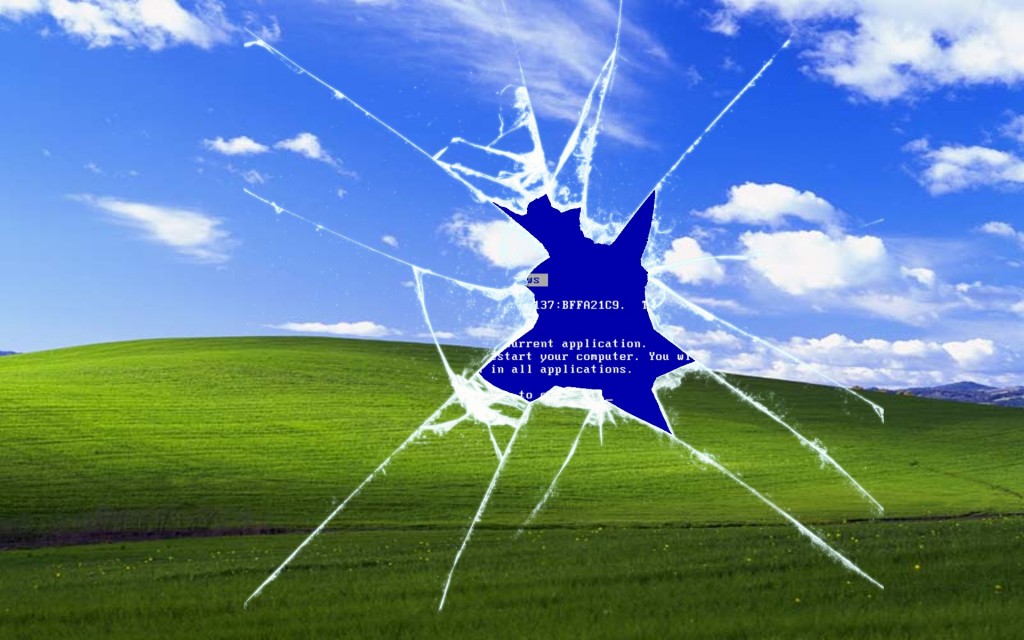
Good old Windows XP is still around despite Microsoft’s all-out war against its own product. It’s really tough to fix what many consumers feel doesn’t need fixing. Speaking of war, not only does Windows XP refuse to die, it’s out there, floating in the oceans to help kill other people if necessary. It’s also helping other people live in various hospitals in the world keeping people alive or simply keeping their records, to keep them alive. Because of that aspect, Microsoft, who pledged to end support for the product and fully replace everything with Windows 10, has no choice but to keep it alive and safe from attack from ransomware.
“Just weeks after the NHS attack, discovering the Queen Elizabeth ‘appears to be running outdated Windows XP’ is a scary prospect,”
— David Emm, Security Researcher, Kaspersky Labs
Imagine a newly-launched aircraft carrier costing 3 billion pounds being run by Windows XP. Hopefully what was spotted on board wasn’t in charge of navigation and weapons systems. It’s really strange, the military’s reliance on this old operating system. The Queen Elizabeth itself should at least be up to speed on its OS even if it started development five years ago. Why XP? It’s not the alleged privacy issues of Windows 7 up to 10, is it? Not to mention the continuous maligning of Windows XP with regards to security. In terms of security, the US Navy commissioned Microsoft for continual updates for Windows XP and the British Navy may have done so as well.
“We have absolute confidence in the security we have in place to keep the Royal Navy’s largest and most powerful ship safe and secure… We take cyber security extremely seriously, and the UK has doubled its cyber investment to 1.9 billion pounds.”
— Spokesman, HMS Queen Elizabeth
With that kind of money, they could probably invest in Red-Hat for a good highly-secure Linux port or a customized version of Windows 10, without the call-home module. Guess both navies are deathly afraid of Windows 10’s Start menu. The USS Enterprise NCC-1701D doesn’t seem to have problems with touch-screens and voice commands. Wouldn’t it be nice if the ship captain can say, “Cortana, fire at will. Make it so,” or “Cortana, 20 degrees to starboard.” That’s some Kantai-Collection or Blue Steel coolness right there.
Anyway, as mentioned, it’s not just the US and British Navy. It’s hospitals, factories, businesses and a lot of other individual users that refuse to let go. They’d rather put themselves at risk to Wannacry, Petya rather than embrace change. Or should Microsoft accept the fact that it built something so good and in some ways better than what they have now that people refuse to let go? Something good enough that they built entire systems around it, that may need to be supported for decades.
Well, apart from hardware integrated systems found in factory machines, ATMs, hospital life-support systems and military hardware, there are other reasons why people keep Windows XP around.
- It’s still prettier than Windows 10. Just kidding. For many people, around 10% of PC worldwide, Windows XP still works. – The system just plain works. If it works and works efficiently, why replace it. Ask the air traffic controllers in France who still use Windows 3.1. If it wasn’t for the deteriorating hardware, my old company’s clinic might still be using Windows 95. Windows XP, partnered with Office 2003 should still work for basic word processing, spreadsheets and presentations as long as the individual or workgroup stay off the internet. Heck, it’s just as easy and fun to write this piece in Word 6 under Windows 3.1 (finding floppies would be a pain though).
- Upgrade Costs – Speaking of keeping old hardware, buying new ones isn’t always as easy for other folks especially companies with hundreds of PCs. By experience, the IT department, though tied to Finance isn’t well loved when it comes to budgets. Undertaking a massive upgrade program often falls ‘under consideration’ amidst other important company functions. Upgrading involves new machines, new licenses, downtime, training and consultancy fees and if the machines still work as described above, the next quarter earnings should decide the upgrade program’s fate.
- Stigma of Vista – Maybe people tried once and became afraid to do so again, like a predator wounded by ‘man’s red flower.’ That red flower was Windows Vista. Sure, let’s upgrade from XP to the new-fangled and long-waited Vista. It will be fun they said. Vista sucked, and the resource hog and security nag forced many companies to double down on RAM DIMMS for their old or new sluggish machines. Nah, upgrading is overrated. Same thing happened with Windows 8. Though Windows 8 is zippy, many don’t like touchy-touchy.
- Security complacency – Wannacry? What’s that? It hasn’t happened to me. Your company probably has a talented System Administrator to keep you safe, or you’re an individual straight-arrow prude that’s never been to a porn or torrent site often riddled with security vectors or maybe even a paranoid prepper who’s terrified of unsolicited emails. That’s all fine but for others, not experiencing security problems is not the same as being really secure. But for many companies, it’s an opportunity to put off upgrading.
- Legacy Software – well, as previously mentioned in item 1, software is not cheap. You can always upgrade your OS, but it may not work with your older software or even hardware you previously paid a fortune for, like a three-billion-pound battleship. Companies and individuals are not easily willing to pay for new versions of their expensive off-the-shelf or in-house software. If they work fine, then just as well. Sometimes new versions tend to take some good stuff away. Like Start Menus.
So that’s why Windows XP refuses to die. Microsoft still has a lot of work to do.

